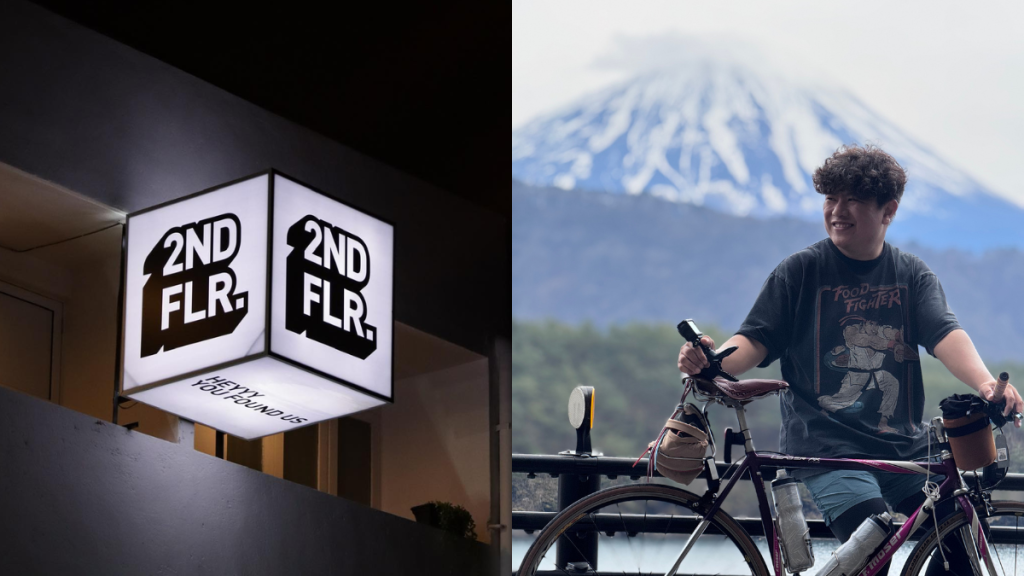Author’s Blurb: With the MCO in place, only essential service providers can stay operational. While many of us are able to still carry out our day-to-day work tasks remotely, non-essential brick & mortar service providers may not be able to do the same.
This had me wondering: how are these brick & mortar businesses that aren’t in F&B surviving weeks of zero customers, and how will they bounce back from this?
For this article, I managed to reach out to 4 different business in varying industries.
They include:
- Colony, a coworking space,
- Future of Wellness (FoW), a health and wellness hub,
- iConFIT, a fitness club,
- And Superdough Sdn Bhd, who’s behind Breakout and Hauntu, immersive entertainment centres.
How Were They Each Hit The Hardest?
Surprisingly, She Mun of Colony told Vulcan Post that it wasn’t their revenue from office space rentals that was suffering.
“Colony has quite a portion of revenue from renting out event spaces, so we’ve gotten hit the hardest on our event space rentals,” she revealed.
Even before the MCO and gathering bans, almost all confirmed events to be held at Colony were already being postponed and cancelled.
However, She Mun added that they were lucky to be in a business where their main revenue stream comes from recurring revenue from their existing private office/reserved desk rentals.
In a different situation altogether, Patrick of FoW revealed that, as a wellness hub that houses multiple services, the lockdown has brought their entire business operations to a total standstill.

Ka Wai of Superdough told us that their main revenue stream comes from foot traffic in shopping malls such as walk-ins, team building exercises, and tourists.
With everyone practising social distancing, they’ve had all revenue streams shut down, as their 8 overseas franchise outlets (which Superdough gets monthly royalty fees from) have also closed due to COVID-19 lockdowns.
For iConFIT, co-founder Karine shared that it’s a very bad time for fitness club owners and trainers at the moment.
“Club closures mean no business, no income, while rentals and fixed costs remain. Some of our contract trainers get paid according to classes conducted, which means they have zero income until the club opens again,” she lamented.
So, aside from Colony (who’s mainly relying on office space rentals currently), the other 3 businesses are struggling with their main revenue streams being shut down.
How Will They Stay Afloat?
2 businesses who are using online solutions to help them in this period are Colony and iConFIT.
Since Colony’s unable to host schedule office tours for interested rentees, the team came up with a virtual tour experience as an alternative so people could still get an idea of what their spaces look like.
Meanwhile, iConFIT has made their programmes online and free for their club students (along with their family and friends).

This was only made possible thanks to iConFIT’s practice of putting aside 15% of their total revenue for the benefit of their club students.
This fund, which was meant to return to students in some form of gifts, recognition, parties, and reward programmes, has now come to their business’ aid.
Then there are businesses that are offering promo deals, of which Colony is also one of them.
Colony is providing a better value package for office enquiries interested in starting their rent on April 14, including a 7-day refund as assurance if they find it unsuitable.
They’re offering 30% off on Time Passes (100-hour access passes to work at Colony) that can be purchased now and used later.
Editor’s Note: The above two paragraphs have been edited to reflect greater accuracy on Colony’s situation after the March 25 announcement of the MCO extension.
Likewise, Ka Wai shared that Superdough is offering promo deals for both Breakout and Hauntu after launching a campaign called ‘SupportOurGM’ (GM stands for both game master and ghost master, respectively).

“We’ve set up an e-commerce platform to sell discounted tickets with a 1-year validity to attract customers to purchase them,” he said.
Breakout tickets now cost RM25/pax, lower than their usual student price, and Hauntu’s tickets which usually sell for about RM58 are now RM35.
On the other hand, Patrick said, “As we are service based, there is literally nothing we can do at the moment. Unlike F&B, we cannot offer mobile spa or beauty services on-demand at home.”
However, he also added, “We are lucky that we have been planning for many months now new business activities that aren’t restricted by business activities at our physical wellness hub. We are hopeful that these may help us stay afloat in the coming months.”
To help with rental costs, all the businesses are also in talks with their respective landlords.
What Will Happen To Their Employees Who Can’t Work Remotely?
Despite their coworking space still being open for members who run essential services, the majority of Colony’s team is able to work from home.
For these members, Colony has allowed their cleaners to continue working for mail and parcel handling as well as to make sure that the offices are well maintained during the MCO.
The remote team then manages and monitors the cleaners off-site, and sponsors food to them across all Colony locations.
iConFIT’s online solution ensures that their trainers are still able to do what they’ve always done at the club, so Karine has one less worry about their jobs being impacted.

On the other hand, Superdough and FoW have a more sombre outlook on things.
Ka Wai shared, “With the MCO, basically nothing can be done by our on-ground staff. The directors and managers have called them one by one to explain the situation.”
He also added, “We did a company-wide working hours adjustment and salary adjustment to control the cash flow for the coming months. However, we’re hoping the e-tickets will sell well so everyone can remain unaffected.”
Patrick and the FoW team are in the midst of working with HR to see if they can repurpose some of their staff since most of the work at the wellness hub cannot be accomplished remotely.
“We will do our best to sustain as much as possible, but may have to make some painful decisions if the lockdown continues,” Patrick said.
How Will They Ensure A Business Rebound?
Speaking of what will happen if the MCO keeps getting extended, each department of Colony’s already has put together a business emergency response plan, even before the MCO.

“We each have leading indicators to tell us when we need to be aware of what, with activation triggers, strategies, and action plans already put in place on each level to tackle the circumstance we’re facing,” She Mun shared.
Also relatively prepared for a situation like this were iConFIT and FoW.
The iConFIT team had actually predicted that something like the MCO would eventually happen and had prepared 2 weeks in advance to secure their online platform strategy.
“We’ll continue doing the free programmes, and after new people sign up for it, they can buy our club pass in advance if they like our programmes. Our current students who want to buy more passes will get special promotion prices,” Karine said.
This can bring in advance payments for the club to hold on a little longer until they reopen.
As mentioned earlier, FoW already had plans for some time to offer wellness solutions beyond their physical hub.
“In fact, we were going to launch in Q1 a number of O2O initiatives, our digital platform, and events outside FoW,” Patrick told us.
“Regardless of whether the MCO will be extended past March 31, we will be launching our digital platform in early April.”
Editor’s Note: Patrick’s statement was given before the announcement on March 25 about the MCO’s extension until April 14.
Some of the solutions they plan to offer on it include home and vehicle sterilising solutions, immune-boosting superfoods, and supplements.
For Superdough, Ka Wai shared that they’re in the process of applying for a bank loan through the government’s stimulus package to support their cash flow in case the MCO gets extended.
Bottom Line: It’s interesting to see how these businesses are handling the MCO, and it seems that technology has definitely played a major role in helping them. While they still function in brick & mortar, the MCO has certainly forced them to advance the digital sides of their business ventures, which may or may not become permanent features if they work out well.
- You can read more about other Malaysian startups here.













